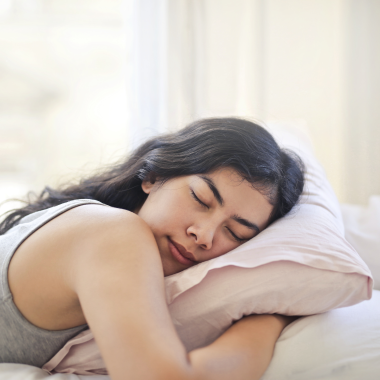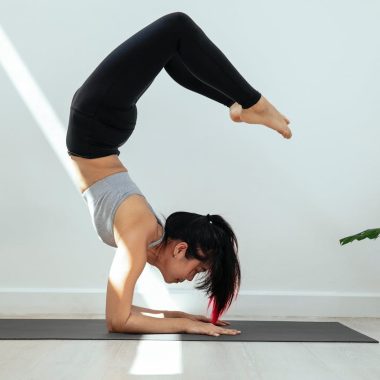Having Trouble Letting Go of Your Smartphone at Night?
The use of smartphones before bedtime has become a habit for many people, with a lot of scrolling through social media or watching videos before falling asleep. However, this behavior can have negative consequences on our health and well-being.
Why You Need to Put Away Your Phone When You Go to Sleep
- Blue Light Suppresses Melatonin
Smartphones emit blue light, which can suppress the production of melatonin, the hormone that regulates sleep. When we expose ourselves to blue light before bedtime, it can disrupt our circadian rhythm, making it harder for us to fall asleep and stay asleep. - Disrupts Sleep Quality
Using your phone before bedtime can also disrupt your sleep quality. The content on your phone can be stimulating, making it difficult for your mind to relax and wind down for sleep. Notifications and alerts can also interrupt your sleep, causing you to wake up during the night. - Impacts Your Overall Health
Poor sleep can have a significant impact on your overall health. Lack of sleep can lead to fatigue, reduced productivity, and weakened immune system. Chronic sleep deprivation has also been linked to various health issues, including obesity, diabetes, and heart disease.
Ways to Give up Screens at Night
- Set a Phone Curfew
Set a specific time to stop using your phone before bedtime. This curfew can help you wind down and prepare your mind and body for sleep. For example, if you plan to go to bed at 10 p.m., set your phone curfew for 9 p.m. - Create a Bedtime Routine
Creating a bedtime routine can help you relax and get ready for sleep. This routine can include activities like taking a warm bath, reading a book, or listening to calming music. You can also incorporate relaxation techniques like meditation or deep breathing to help you unwind. - Remove Devices from the Bedroom
Removing electronic devices from the bedroom can help reduce the temptation to use them before bedtime. Keep your phone and other electronics in another room or in a drawer to minimize their impact on your sleep. - Use a Traditional Alarm Clock
Using a traditional alarm clock can help you avoid the temptation to use your phone before bedtime. It can also prevent notifications and alerts from interrupting your sleep. - Use Night Mode
Most smartphones have a night mode or blue light filter feature that can reduce the amount of blue light emitted by the screen. This can help minimize the disruption to your circadian rhythm and make it easier for you to fall asleep. - Be Mindful of Your Screen Time
Being mindful of your screen time throughout the day can help reduce the impact of smartphones on your sleep. Set limits on your phone usage and take breaks from screens throughout the day.
Quality sleep is a crucial aspect of our overall health and well-being. However, the use of smartphones before bedtime has become a prevalent habit for many people. Unfortunately, this routine can negatively impact sleep quality and, subsequently, our health.
The blue light emitted by the phone’s screen can suppress melatonin production, disrupt our circadian rhythm, and make it harder to fall asleep. Moreover, using a phone before bedtime can lead to overstimulation, interrupt sleep, and reduce sleep quality. Chronic sleep deprivation is linked to a host of health problems, including obesity, diabetes, and heart disease.
Thankfully, there are ways to avoid using phones before bedtime. Setting a phone curfew, creating a bedtime routine, removing devices from the bedroom, using a traditional alarm clock, and using night mode are practical tips that can help you avoid using your phone at night. Moreover, being mindful of your screen time throughout the day can reduce the impact of smartphones on sleep quality.
By adopting these habits, you can give up screens at night and achieve better quality sleep, leading to improved overall health and well-being.








